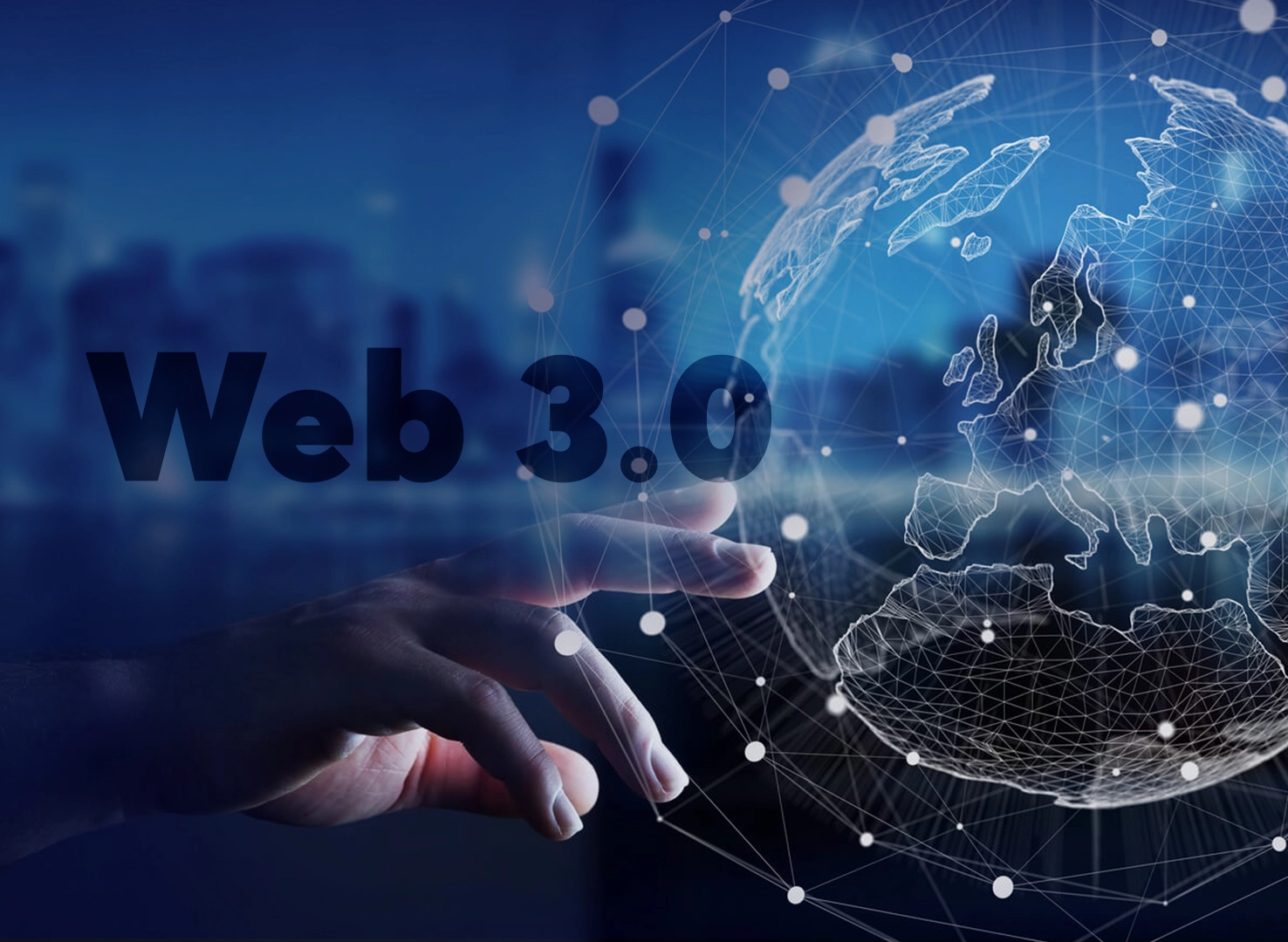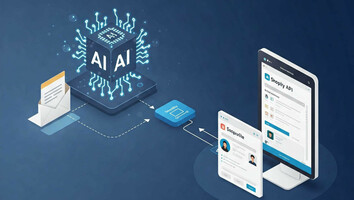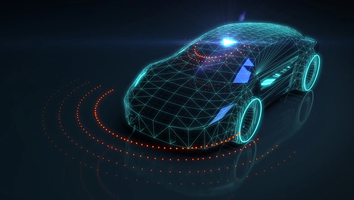The third-gen of online technology has started gaining traction which is known as Web 3.0. Although technology is still relatively young and lacks a common definition of what it is or implies, it is one of the most important technologies for organizations.
Investors have reportedly already staked $27 billion on Web 3.0 as the "future of the internet," according to a New York Times report.
To know more, let’s get started!
What is Web 3.0?
The Internet's next phase, known as Web 3.0, is rapidly approaching. This is not going to happen someday in the future. Web 3.0 will have matured to its full potential in two years. It has already begun to disperse.
Blockchain technology is Web 3.0's main motivator. The same technology that underpins Bitcoin is called a blockchain. Instead of using a single server, it uses a decentralized ledger technology (DLT) to store data among thousands of machines simultaneously. More data may be shared and stored as a result, making it more effective and available to anybody who needs it.
Why is Web 3.0 Important for the Business?
The world is headed for a day when there won't be any geographical boundaries, everyone will be connected, and everything will be virtual.
Web 1.0's primary objective, as previously stated, was to launch personal computers and the Internet. Web 2.0 was dominated by social networking and social media sites.
When the Internet reaches Web 3.0, it will eventually expand to the size of the universe. The Web 3.0 era is characterized by decentralized applications and blockchain technologies. At this point, blockchain-based platforms that can decentralize almost all facets of our life will start to appear.
Examples of Web 3.0 in Real Life
Social networking, virtual assistance, education, messaging, exchange services, surfing, and other fields have already used Web 3.0.
For instance, you can ask your digital assistant to check the contents of your fridge while you're at work by communicating with the connected smart gadgets in your home. This will allow you to see whether you have any groceries at home.
By using your Internet-connected devices at home, you may also plan your vacation, work travel, weekend party, and household chores, and even secure your home security. Your virtual assistant's unique suggestions assist you in planning the ideal weekend, including locating intriguing new locations to explore, purchasing discounted tickets, and making hotel reservations.
Main Features of Web 3.0
Blockchain technology alone won't be enough; numerous other technologies must cooperate and develop. Emerging technologies now comprise the essential components of Web 3.0 for the Semantic and Decentralized Web.
The five characteristics listed below can help us define Web 3.0:
-
Semantic Web
The Semantic Web is the next development in the web's evolution, improving the usability and accessibility of websites. With the use of the Semantic Web, users may conduct more accurate and efficient content searches by using exact meaning instead of keywords or page numbers to look up information.
-
Artificial intelligence (AI)
By fusing humans and technology, artificial intelligence is developing into just that: intelligence. And it's doing so right now when people need assistance to successfully search or explore the web.
Businesses of all sizes may use Web 3.0's powerful integration of artificial intelligence and natural language processing to provide their clients with quicker and more relevant results.
So that they aren't diverted when completing the essential workflow tasks that they must consistently carry out as part of their job duties.
-
3D graphics
Today's digital world makes extensive use of 3D design. It is frequently utilized in animation, video games, and the arts. Additionally, 3D photography is being increasingly often used by web designers to create immersive and engaging websites.
Enhancing the Internet with 3D images is changing numerous sectors. These include everything from computer games to eCommerce to museum tours.
-
Connectivity
The Semantic Web, also known as Web 3.0, is a system in which data—not just any data, but data that machines can understand—link everything.
Because of this, a higher level of connectivity is possible, enabling user experiences to instantly change to benefit from more data.
-
Ubiquity
Internet-connected PCs are getting more productive as a result of the Internet's increasing speed. The Internet is connected to everything, including Bluetooth gadgets, watches, drones, and lamps. Using a computer or a mobile device, users can access the services at any time and from any location.
Potential Benefits of Web 3.0 That Could Transform the Businesses
Here is the list of the benefits of Web 3.0 that may significantly transform businesses and entrepreneurs.
- 1. Control over Data Ownership
Look at all the websites and internet tools you regularly use. To gain access to various services, you provide your personal information on numerous platforms. You produce content, like images or videos, and post it online to platforms like Facebook and Instagram. You must have believed that your private information on an Amazon account or the pictures on your Facebook profile is safe and under your control in the midst of all this.
That is untrue, though, as centralized organizations like Facebook, Google, and Amazon use various strategies to commercialize user data. End users would have total control over the data they possess thanks to the advantages of web 3.0 by design. Users had the option to share information based on their choices. Web 3.0 may therefore profit from removing the tech giants' stranglehold over user data.
- Anti-Monopoly and Data Protection
Aspects of Web 3.0 include professional and data protection approaches. It backs decentralized operating systems that retain ownership of the user data they process.
There will be a front-line change as a result of decentralization and privacy.
- Seamless Service
The number of accounts terminated and distributed services refused has significantly decreased. Because there isn't a set, predetermined breaking point, there aren't many assurances. The data is stored on distributed nodes for redundancy, and several backups protect against server failure or server hijacking.
- Permissionless Blockchain
Web 3.0 does not require centralized authority. Anyone can sign up for the network and participate by generating an address. It is therefore difficult to block individuals based on their gender, level of money, sexual orientation, geography, or other social traits. Furthermore, it enables the rapid and affordable transfer of physical and digital assets between nations.
- Enhanced Data Processing
Web 3.0 is advantageous for labor-intensive knowledge development and problem-solving tasks. It employs artificial intelligence to filter out crucial information from a sea of data.
Why Web 3.0 Is Important for the Future?
Here are the top reasons why web 3.0 will be the next big thing:
- Less reliance on centralized repositories: To prevent hackers, leaks, and dependency on centralized repositories, Web 3.0 aims to make the Internet a varied source. Users may be able to own their data and digital footprints using certified data scarcity and tokenized digital assets. There would be no accountability for data usage on any platform.
- More individualized exchanges: In 2022, Web 3.0 will gain significance as more and more people continue to value personalized and customized web browsing experiences.
- Better search assistance powered by AI: Demand for humanized digital search assistants will rise as they become more sophisticated, widespread, and supported by semantics, blockchain and AI.
- Less reliance on intermediaries: It will assist in the de-intermediation of enterprises, the elimination of rent-seeking middlemen, and the direct transfer of value to network customers and suppliers. By sharing ownership and governing these new decentralized intelligence structures, network users will collaborate to address issues that have hitherto been difficult to control.
- Rise in peer-to-peer connectivity: The connection between members and organizations will continue to be inherently strong through new Internet innovations to keep up with more adaptable peer-to-peer engagement and governance. Peer-to-peer networking will allow for more secure and private data sharing between individuals, organizations, and machines.
- Increased conviction: We can future-proof entrepreneurial and investment activities by reducing reliance on specific platforms with the expertise of the next Internet generation.
Final Thoughts
Applications developed for the web 3.0 platform have shown promise in addressing many of the shortcomings. However, it's also crucial to consider if the benefits of web 3.0 outweigh those of its predecessor.
Web 3.0 is crucial because it enables organizations to expedite processes by removing the intermediary and connecting computers directly.



